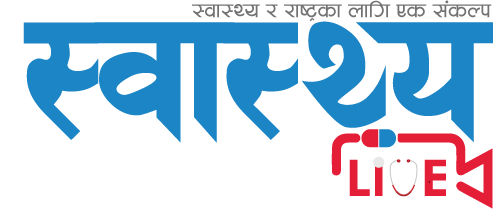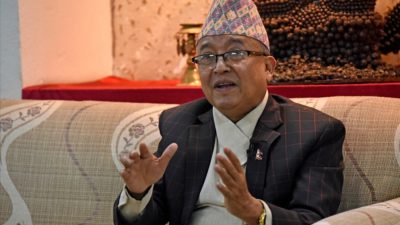Global Fund Projects Stall as UNDP Struggles to Take Off

KATHMANDU, April 16.
Nepal’s Global Fund-backed health programs are facing a growing crisis as the newly appointed Principal Recipient (PR), the United Nations Development Programme (UNDP), struggles to operationalize its responsibilities — raising questions about both the agency’s intent and capacity to manage the crucial HIV, tuberculosis (TB), and malaria programs.
Since UNDP formally took over the PR role on August 1, 2024, the only significant activity seen on the ground has been the continued distribution of antiretroviral therapy (ART) for people living with HIV. Other key programs have remained virtually stalled, while the Health Ministry — rather than asserting oversight — has been accused of passively watching the situation unfold.
It has now been eight months and sixteen days since UNDP was expected to launch its work under the new grant cycle. Insiders say the agency appears unprepared and slow-moving, raising concerns that the Global Fund’s efforts in Nepal are heading toward a breakdown.
“Programs like this cannot be run on forced arrangements or under pressure,” a senior official familiar with the negotiations said. “But institutional self-interest is no excuse for jeopardizing public health, and UNDP should not be allowed to paralyze a government-funded program.”
Previously, Save the Children had been handling the role of PR since March 16, 2021, until its term was set to end on July 31, 2024. The Global Fund’s programs — aimed at controlling TB, HIV, and malaria — have long relied on this mechanism to channel international aid to Nepal.
When UNDP was chosen as the new PR for the next grant cycle (August 1, 2024, to July 31, 2027), the transition was expected to be smooth. However, due to what sources describe as inadequate preparation on the part of both UNDP and the Health Ministry, Save the Children’s term was extended for another six months — until January 31, 2025. Despite this grace period, both UNDP and the government failed to put necessary systems in place, and Save the Children formally stepped away at the end of January. Since February 1, UNDP has been officially in charge — but no meaningful progress has been reported.
The delay is already having an impact on the ground. An estimated 25,000 people are currently on ART for HIV, while only 40,000 TB patients have been reached so far, despite government estimates suggesting there are 70,000 active cases across the country. The national strategy had aimed to detect 47,000 cases in 2025, 48,000 in 2026, and 52,000 by 2027. However, government officials admit that more than 2,500 TB cases have likely gone undetected in the past two months alone.
The malaria program has also hit roadblocks. Nepal has been working toward eliminating local malaria transmission altogether, but out of 600 cases recorded so far, 56 have been confirmed as locally transmitted. Public health experts now warn that UNDP’s failure to effectively implement the program could derail this national goal.
Critics have begun raising tough questions about UNDP’s ability to manage the Global Fund in Nepal. Some believe the agency’s indecision and lack of urgency could prompt the Global Fund to reconsider its long-term support for the country altogether.
The situation also comes at a time when global donors, including the U.S., have shown a growing tendency to withdraw from programs they deem ineffective. Observers recall that during his presidency, Donald Trump had suspended several international aid packages based on performance reviews — and fear that the Global Fund might follow a similar path if Nepal fails to improve delivery.
Given the rising alarm, experts are urging the Ministry of Health and the Global Fund’s Geneva headquarters to treat the matter with immediate seriousness. “If Nepal continues to handle this as it has, the Global Fund might soon pull out — just like USAID did in the past,” one senior official said.
क्याटेगोरी : English, समाचारट्याग : ##Global Found, ##undp
















तपाईको प्रतिक्रिया दिनुहोस